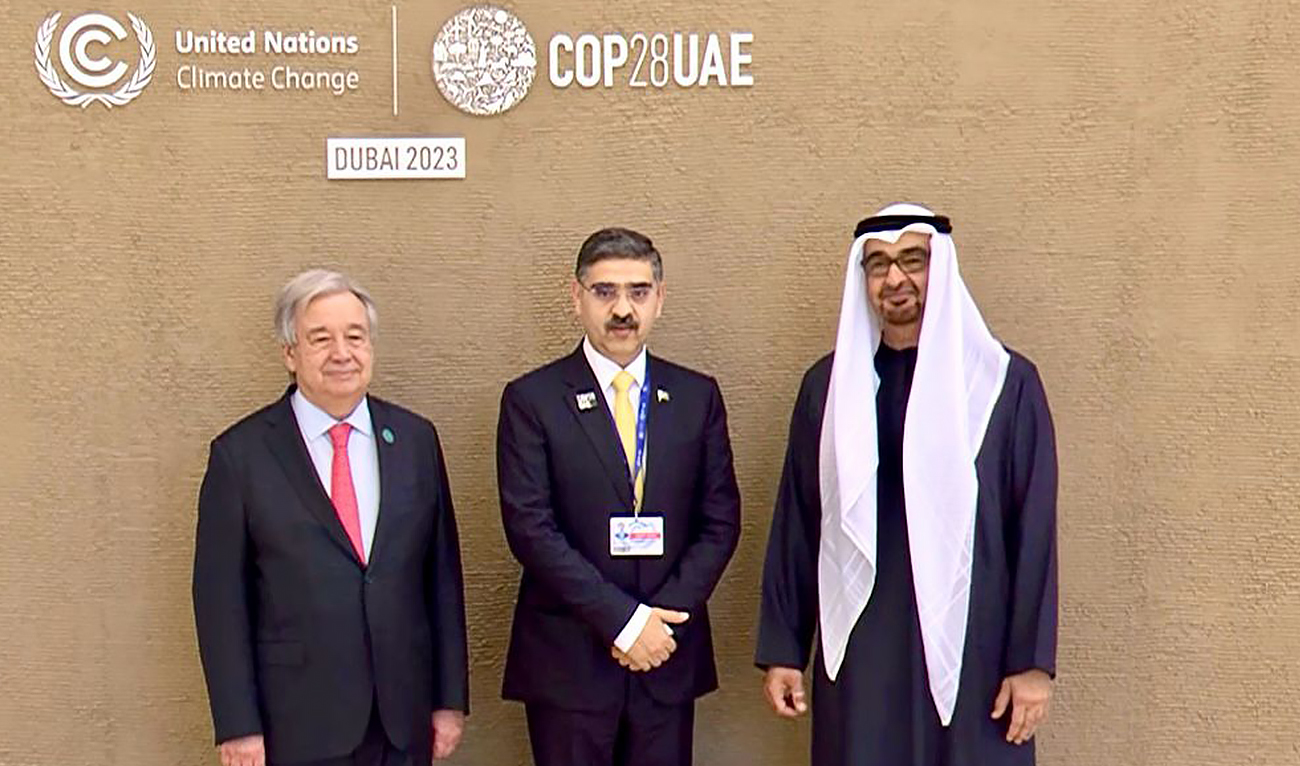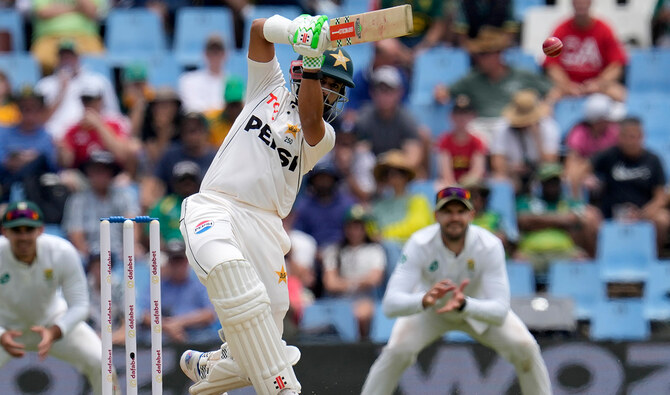ISLAMABAD: Caretaker Prime Minister Anwaar-ul-Haq Kakar urged the developed world on Saturday to help nations most vulnerable to the impact of erratic weather patterns by extending financial and technical assistance while addressing a gathering at the United Nations climate conference in Dubai.
Kakar is on a week-long visit to the Middle East where he is currently spearheading his country’s delegation at the 28th UN Conference of Parties (COP28) that began on Nov. 30.
Pakistan is among the most vulnerable nations in the world to climate change and has set up its own pavilion at the conference venue to highlight some of the most-pressing issues related to a rapidly accelerating climate crisis.
Kakar participated in the Global Stock Take event to assess the progress made by the world to collectively deal with the issue of climate change.
“In his remarks at this roundtable discussion, the Prime Minister highlighted the acuteness of the climate crisis and laid emphasis on providing adequate means of implementation including climate finance, capacity-building and technology, to developing countries to tackle this growing challenge,” said a brief statement issued by his office in Islamabad.
He pointed out that climate finance would always be the enabler for climate action, adding that the needs of developing countries far exceeded the unfulfilled $100 billion pledge made in Paris during the 2015 conference to ensure climate adaptability.
“Prime Minister also called for scaling-up development and transfer of proven climate technologies, as well as better delivery of capacity building for developing countries,” the statement added. “The need for greater coherence and coordination across the United Nations system was also underscored.”

Pakistan's Caretaker Prime Minister, Anwaar-ul-Haq Kakar (center), is being received by the President of the United Arab Emirates, Sheikh Mohamed bin Zayed Al Nahyan (right), and the Secretary-General of the United Nations, Antonio Guterres, upon his arrival at Dubai Expo City to attend the High-Level Segment of the United Nations' 28th Conference of Parties on December 1, 2023. (Photo courtesy: PMO)
Kakar is also scheduled to attend a discussion session on the ecological restoration of the Indus Basin at the UN conference.
The event is organized at the Pakistan Pavilion by Living Indus, the country’s biggest climate initiative that is estimated to cost $11-17 billion and was launched with UN support last year in September.
The initiative aims to protect and restore the health of the Indus River, which is crucial for the economy, environment and well-being of millions of people in Pakistan.
The Living Indus project focuses on addressing the challenges faced by the Indus River system, including water scarcity, pollution and habitat degradation, through various conservation and sustainable management strategies.
According to the information available on its website, 90 percent of Pakistan’s people and more than three-quarters of its economy resides in the Indus Basin. More than 80 percent of Pakistan’s arable land is irrigated by its waters, and nine out of the ten largest cities in the country are situated within 50 kilometers or less of the waters of Indus.
The Indus River has served as the vibrant core of the social, cultural and economic life of what is now Pakistan for well over 5,000 years. According to the country’s former climate change minister, Senator Sherry Rehman, however, it is the world’s second most polluted river today.
















